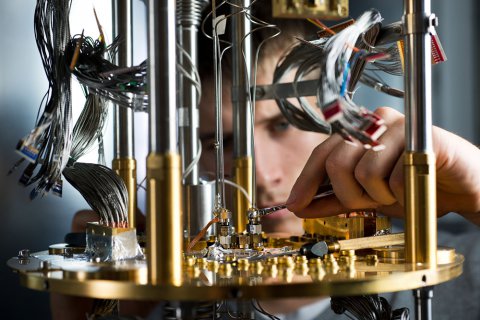AWS Braket Cloud Service Provides Access to Quantum Computers by D-Wave and More
The service could give a boost to Google and IBM's quantum computing competitors.

Amazon Web Services (AWS), the data center services arm of Amazon, this week launched Braket, a service that “lets developers, researcher and scientists explore, evaluate and experiment with quantum computing.”
Researchers will be able to create their own quantum algorithms, use a variety of quantum computing configuration options and then simulate and verify them. Developers can also select from pre-built algorithms to integrate and run them on their own services.
AWS is giving customers access to hardware including Rigetti’s gate-based superconductor computers (similar to Google and IBM’s supercomputers), D-Wave's quantum annealing computer, as well as IonQ’s ion trap quantum computer.
Amazon will also provide access to classical computing resources that have low-latency connections to its quantum computers for those interested in building hybrid algorithms.
Because quantum computers can cost many millions of dollars and their value isn't proven yet, it's not very practical for private companies or governments. Most of the companies building them have decided that the best way to recuperate their R&D investment is to offer cloud service access to them. Both D-Wave and IBM have done this in the past couple of years.
Since Amazon hasn’t joined companies like Google or IBM in building its own quantum computer (at least not yet), it makes sense to partner with some of the best alternatives in the market right now. Even if AWS built its own quantum computer, there’s no guarantee that it would have been better than the one Google or IBM have already built, each with more than a decade of research.
Additionally, as AWS pays Google and IBM's quantum competitors for access to their quantum computers, those competitors will receive the necessary funding to continue improving their own quantum computers, helping them to keep up with Google, IBM or other larger companies.
Get Tom's Hardware's best news and in-depth reviews, straight to your inbox.
AWS has an advantage given that it's already a leader in public cloud services, and giving access to quantum computing resources is a natural extension of that.
Lucian Armasu is a Contributing Writer for Tom's Hardware US. He covers software news and the issues surrounding privacy and security.